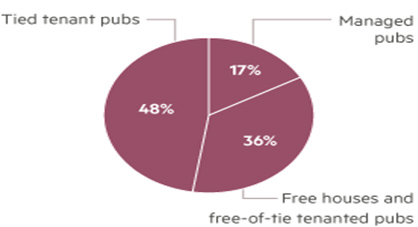Revolution brewing in pubs
It may only be a temporary victory but it was still extraordinary. The UK government was defeated in a vote in Parliament on the degree of control that parent companies can exercise over pubs. On 18 November 2014 MPs voted 284 to 259 in favour of an amendment, which would allow landlords an independent rent review and give them the right to buy their beer on the open market.
Currently, so-called “tied pubs” are required to buy supplies – often at high prices – from the companies that own the pubs.
The amendment to the Small Business, Enterprise and Employment Bill was put forward by Lib Dem Greg Mulholland.
Ministers want to create a pubs code, aimed at helping pub landlords struggling to pay rent or beer costs. It includes the right to request a rent review after five years.
But campaigners wanted the automatic right for pub landlords to exchange their tenancy for independently-assessed market rent agreements without any tie.
About a third of UK pubs are run on a tenanted model, most of them owned by Enterprise Inns and Punch Taverns. Roughly half of profits from tenanted pubs come from beer sales, with the other half deriving from rents on properties.
The amendment would mean tenants would no longer have to buy beer from their parent pub company and could seek contracts where they would only pay rent.
The system with its restrictions on the purchase of drinks from competitors and limits on freedom of rent agreements has been blamed for the increase in pub closures, uncompetitive prices and the failure to attract more tenants.
Almost 20,000 pubs have shut over the past 20 years. There were 68,000 pubs in the UK in 1982, while in 2013 there were only 48,000 pubs left. A survey by the Campaign for Real Ale also showed that almost 60 percent of landlords in tied tenancies earned less than the national minimum wage equivalent salary of GBP 10,000 (EUR 8,000) a year.
The Campaign for Real Ale, which has campaigned for 10 years for the changes, said it was a “victory” for beer drinkers, pub goers and licensees. “Allowing over 13,000 pub tenants tied to the large pub companies the option of buying beer on the open market at competitive prices will help keep pubs open and ensure the cost of a pint to consumers remains affordable,” said CAMRA chief executive Tim Page.
However, the industry body British Beer & Pub Association, whose members own around 20,000 of the nation’s pubs, said the changes could do more damage to the already troubled industry. “This change effectively breaks the ’beer tie’, which has served Britain’s unique pub industry well for nearly 400 years. It would hugely damage investment, jobs, and result in 1,400 more pubs closing, with 7,000 job losses – as the Government’s own research shows,” BBPA’s chief executive Brigid Simmonds said in a statement.
Heineken, the brewery group whose Star Pubs & Bars unit has 1,300 leased premises, was quoted as saying that the proposals “would threaten that partnership and make it more difficult for people to enter the market and own their own pub. We urge Parliament to think again before this poorly thought out proposal becomes law.”
Market observers expect the big pub companies to lodge a complaint against these reforms, which might even be successful.
Looks like the fight against the beer tie is not over yet.

